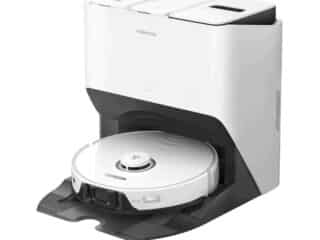
So, what is the difference between a dry cough and a wet cough?
It seems that people who have been infected with the novel coronavirus have a dry cough. Only very few have a dry cough. After reading this, you are probably in panic mode. Developing a nagging cough does not necessarily mean that you have COVID-19. As mentioned earlier, coughing is a normal reflex that helps protect the body by eliminating germs, toxins, and mucus from the lungs and trachea. A cough that lasts for more than a couple of weeks is not caused by the cold or flu.
As a rule, a dry cough does not bring up phlegm or mucus. It is the result of an inflammation or irritation in the respiratory tract. What happens is that the throat and lungs become inflamed due to a bacterial or viral infection. Let us not forget about physical strain and external irritants like cigarette smoke. You feel a tickle in the back of the throat. The good news is that there are several remedies for dry cough, the most famous one being honey. You must experiment with several solutions before finding the one that works best for you.
A wet cough, commonly referred to as a productive cough, brings up phlegm and mucus that clear the airways of irritants. It can occur due to respiratory infections, chronic lung conditions, and heart conditions. More often than not, a wet cough is accompanied by symptoms such as shortness of breath, wheezing, and snore-like sounds. If the cough is producing blood, there is reason to be concerned because it might indicate cancer.
How to know if your cough is a sign of COVID-19
The most notable physical manifestations of COVID-19 are fever and fatigue. Taking into consideration the fact that COVID-19 is a respiratory illness that targets the lungs it should not come as a surprise that it is accompanied by coughs. The cough is dry and persistent and, as the deadly disease progresses, you have difficulty breathing as your body cannot get enough oxygen. If you suspect that you might have the novel coronavirus infection, be on the lookout for symptoms like high fever, loss of smell or taste, and shortness of breath.
Having the symptoms mentioned above does not automatically mean that you have COVID-19. It is important to keep in mind that COVID-19 is very similar to other illnesses, such as common cold or flu. Some people do not even develop symptoms at all. Asymptomatic patients carry the same amount of virus as symptomatic ones. The point is that a cough is not a clear indication of the coronavirus infection. It can happen with some types of allergies and infections. Regardless of the situation, a dry cough is bothersome and troublesome to manage, so do not let it get worse. Schedule an appointment with your doctor immediately and discuss treatment plans.
What does it take to get rid of a dry cough?
There is no cure for COVID-19, yet a dry cough can be managed. The doctor will recommend cough suppressants like dextromethorphan to limit the cough reflex. If you are struggling with a dry, tickly, or irritating cough, you might want to opt for a natural treatment. Antibiotics should only be used if you are severely ill or have an underlying medical condition such as cystic fibrosis. Natural remedies tend to be safer as opposed to pharmaceuticals. If used correctly, they are completely safe. Cough syrup has worrisome side effects, including dizziness, nausea, blurred vision, and vomiting.
If you want to stop coughing, consider the following panacea:
Brew soothing ginger tea
It is recommended to drink plenty of liquids when you are sick. A warm cup of ginger tea will help you recover right away. Ginger has anti-inflammatory properties, not to mention that it can relieve pain. The active compounds in ginger are gingerols and shogaols. They are the ones that give ginger its medicinal properties. Combine ginger with fresh water in a saucepan and bring the combination to a boil. Let it simmer for a couple of minutes if you want the tea to be stronger. You can add fresh lime and honey.
Get plenty of rest
Your body does not have the necessary energy to fight off the germ or virus that is causing the cough. So, make sure to get plenty of rest. De-caffeinate yourself and go to bed. Take it easy until you get better. If you push yourself too hard, you will end up exhausted. Adequate rest will boost your immune system, so chances are that you will feel better sooner. Stay in bed and avoid strenuous activities. If your cold or flu is bad enough, you will no doubt find yourself tossing and turning all night long.
Hit the shower
Being in a hot shower is the best thing you can do because the steam soothes breathing passages and make it easier to clear your airways. Take a hot bath before going to bed. There is no rule for how long you are supposed to stay in the shower. It would be helpful if you can get a dehumidifier. The excess moisture in the air can lead to irritations, which in turn block the nasal passages. Do not let your home become dried out and uncomfortable, though.
As you can plainly see, there is no need to resort to pharmaceuticals when struggling with a dry cough. Natural treatments work perfectly fine and they are not aggressive. If you think you might have symptoms of COVID-19, reach out to your doctor.






